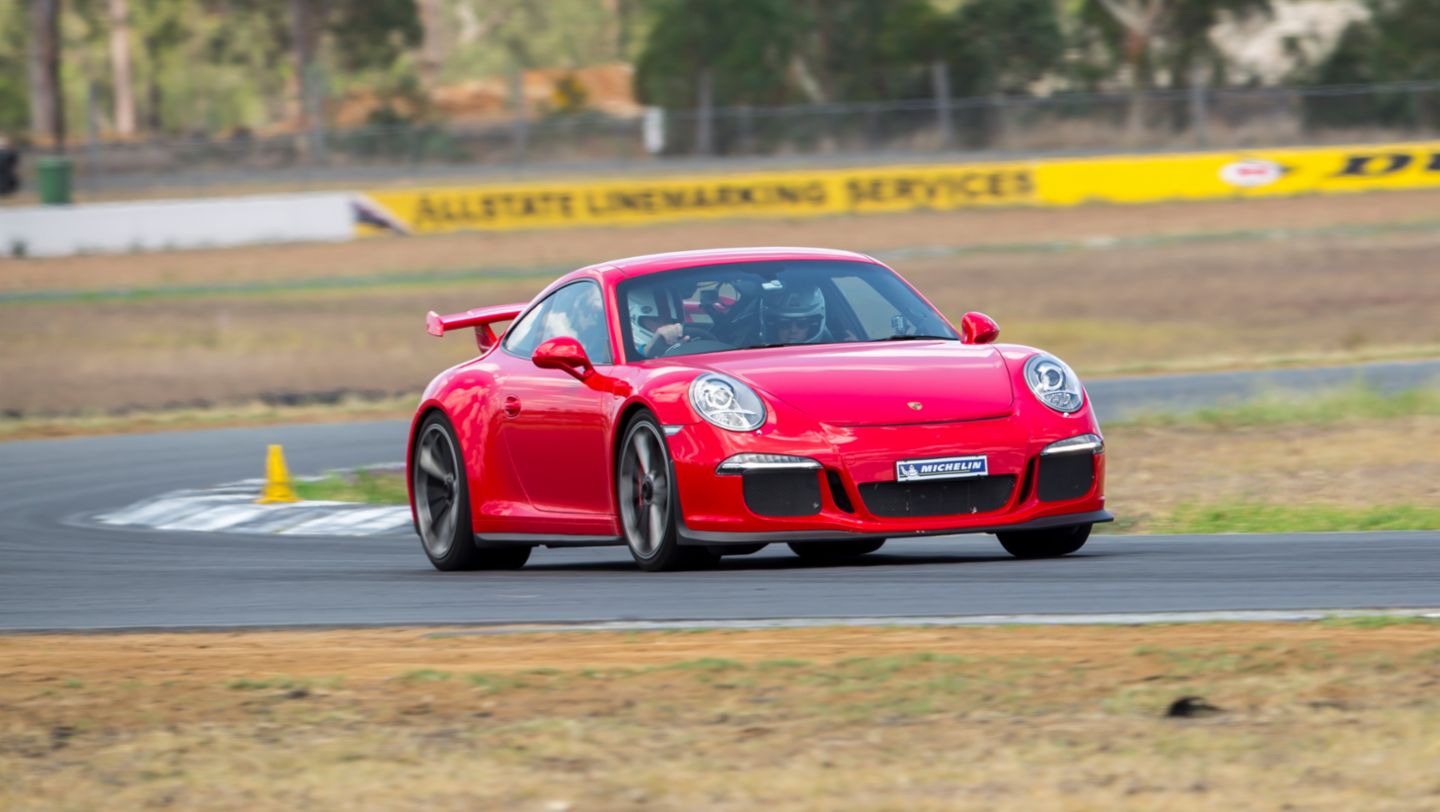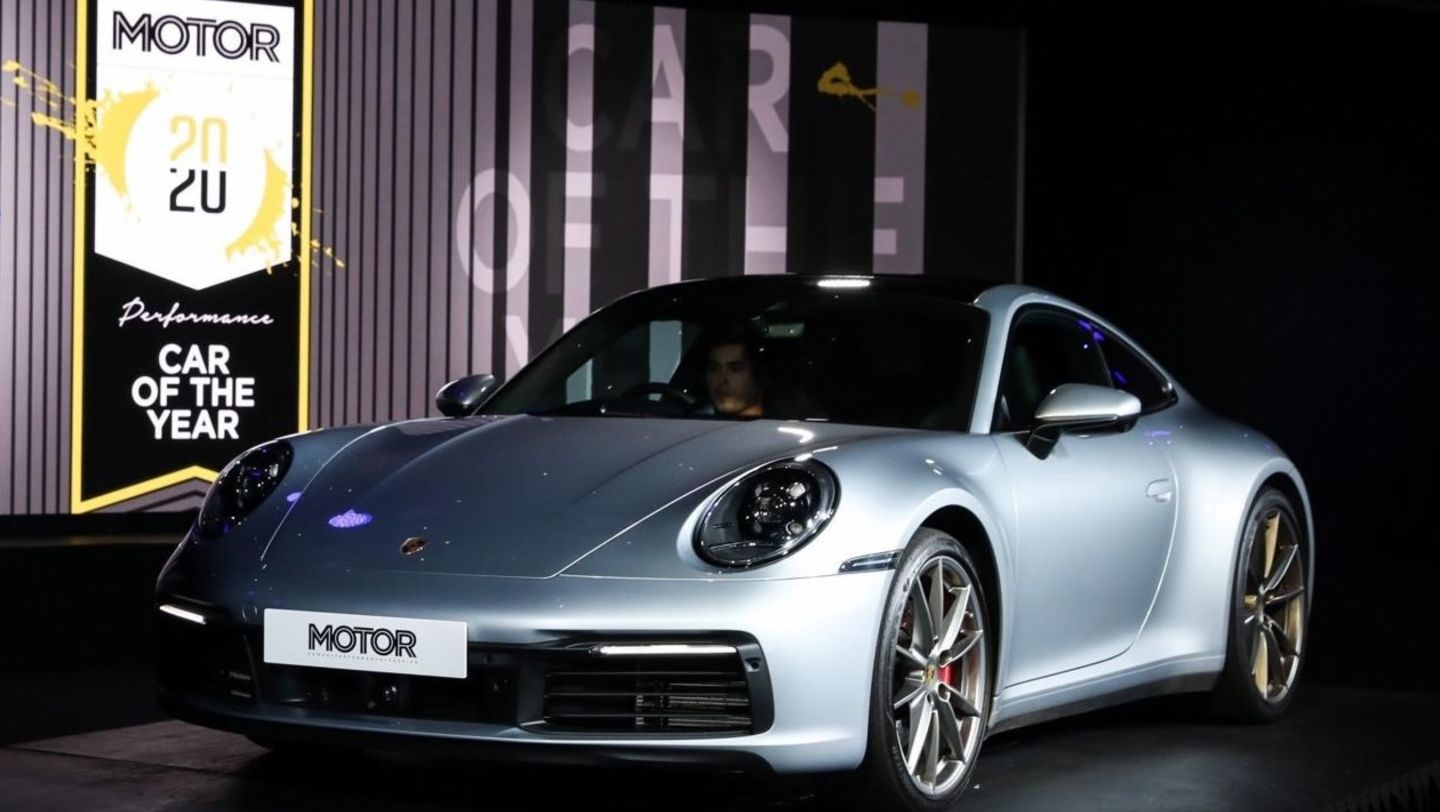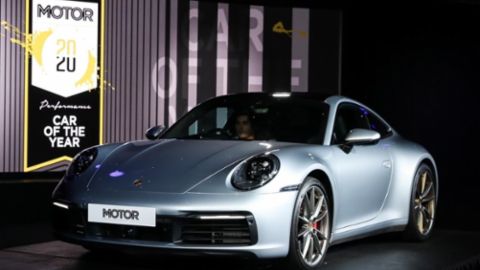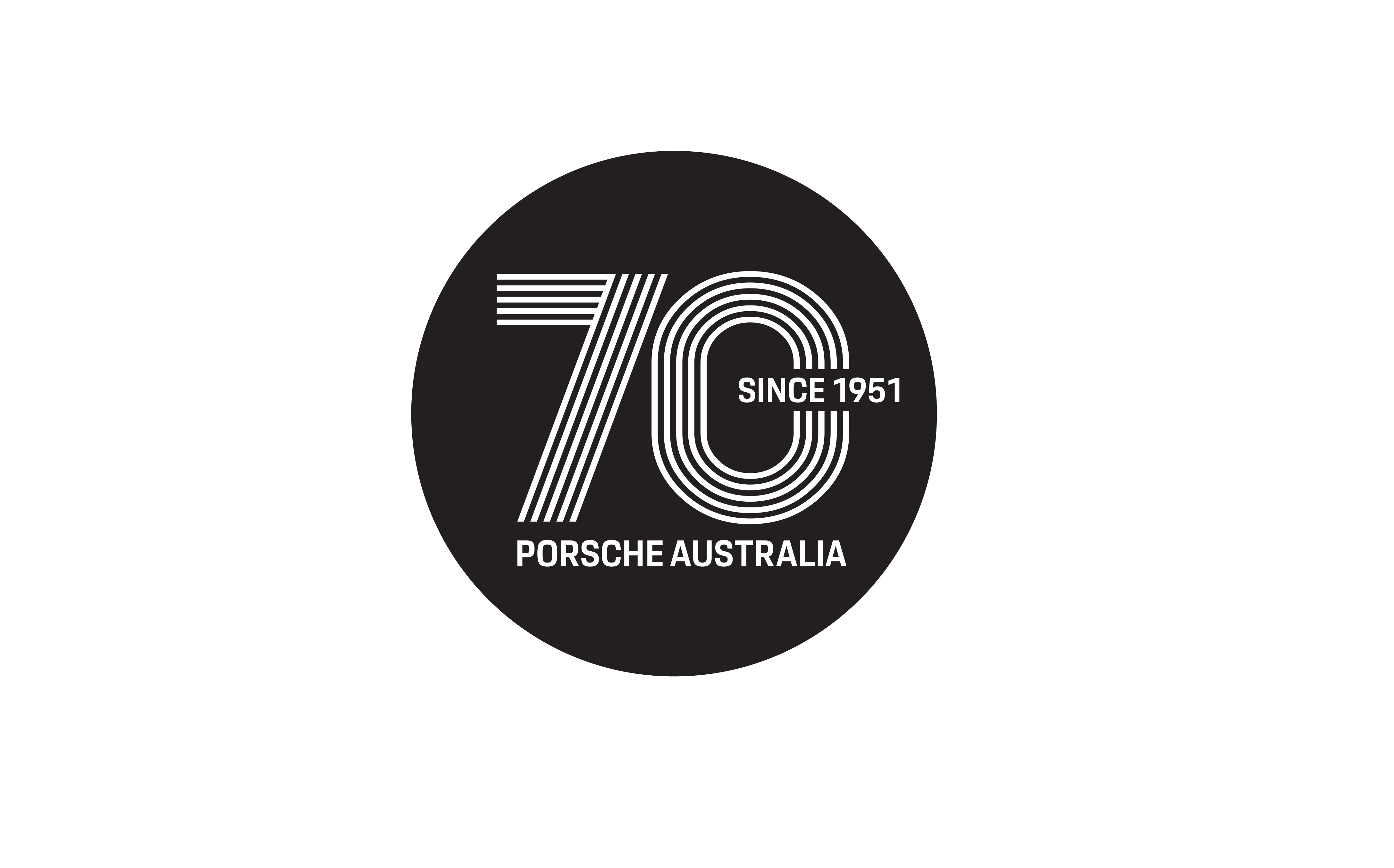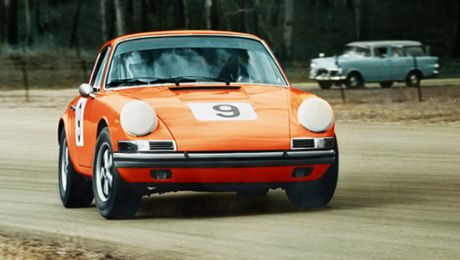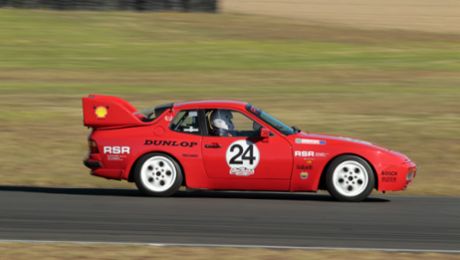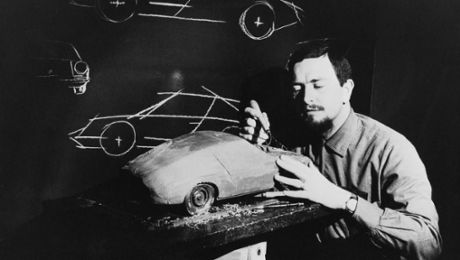Better known to local fans as PCOTY (nickname pronounced as ‘pee-cot-ee’), the MOTOR Performance Car of the Year is the Australian magazine’s annual testing event that assesses the best performance cars released each year, with the aim of unearthing a single winner. After conducting around 150 road tests and vehicle comparisons throughout the year, MOTOR’s gong is the one industry award that seeks to reward outright performance. And as final exams go, it’s not an easy one.
“PCOTY rewards properly engineered cars with a certain toughness and purpose,” says MOTOR Editor Andy Enright. “MOTOR’s Performance Car of the Year always has been a uniquely Australian performance car award, and that’s important. It places priority on cars that work well in Australian conditions, on our roads, on our race tracks, in our climate and in terms of positioning in the Australian performance car market. If I had to encapsulate that in one word it would probably be ‘ruggedness’.”
It’s news when a Porsche doesn’t win MOTOR magazine’s Performance Car of the Yea
It’s a fitting term, because it also underlines how far the MOTOR PCOTY team goes each year to find Australia’s best performance car.
“We’re unapologetic about the fact that testing can be a test of attrition. The cars are never abused, but they are taken to the limits of their capabilities. I can think of many contenders that felt fantastic when driven at eight-tenths, but which became far less impressive when driven hard. It’s only at the limits that apparently small engineering details often become a measure of a vehicle’s ultimate ability,” Enright continues.
"“Porsche understands performance car buyers." Andy Enright, Editor Motor Magazine
And it’s typically in these last two-tenths that a car’s truth is revealed, something the MOTOR team witnesses each year during its PCOTY programme.
“Plenty of wannabes have failed this process,” says David Morley, a veteran journalist and road tester who has been a judge at every MOTOR PCOTY since 1996.
“We’ve seen everything from split oil coolers to blown power steering pumps. Even throttle pedals that have broken.”
Enright underlines this point: “We appreciate that owners may not choose to drive their cars in this manner, but it’s always reassuring to know that your car has been engineered with this level of reserve.”
But this isn’t a durability test. The quest to find the year’s best performance car sees all contenders assessed against six tough criteria: performance, dynamics, accessibility, livability, value, and its ‘X factor’.
This last one encapsulates everything from the car’s exhaust note to the judges’ ownership desires. Each competing car is assessed and scored in the context of its peers and all driving activities are conducted on race tracks and public roads.
Despite MOTOR’s exacting standards and the Australian new-car market’s vast selection of sports models, Porsche heads the honour roll with an unmatched PCOTY record of 15 wins from 25 starts. It’s a success rate that even spawned an in-joke.
“PCOTY started to stand for Porsche Car of the Year,” says Morley, a quip that’s been echoed by enthusiasts as well as many within the local car industry. But he’s quick to add the impressive trophy count isn’t driven by brand power or a single model.
“It hasn’t been just one generation or one genre of Porsche’s cars.”
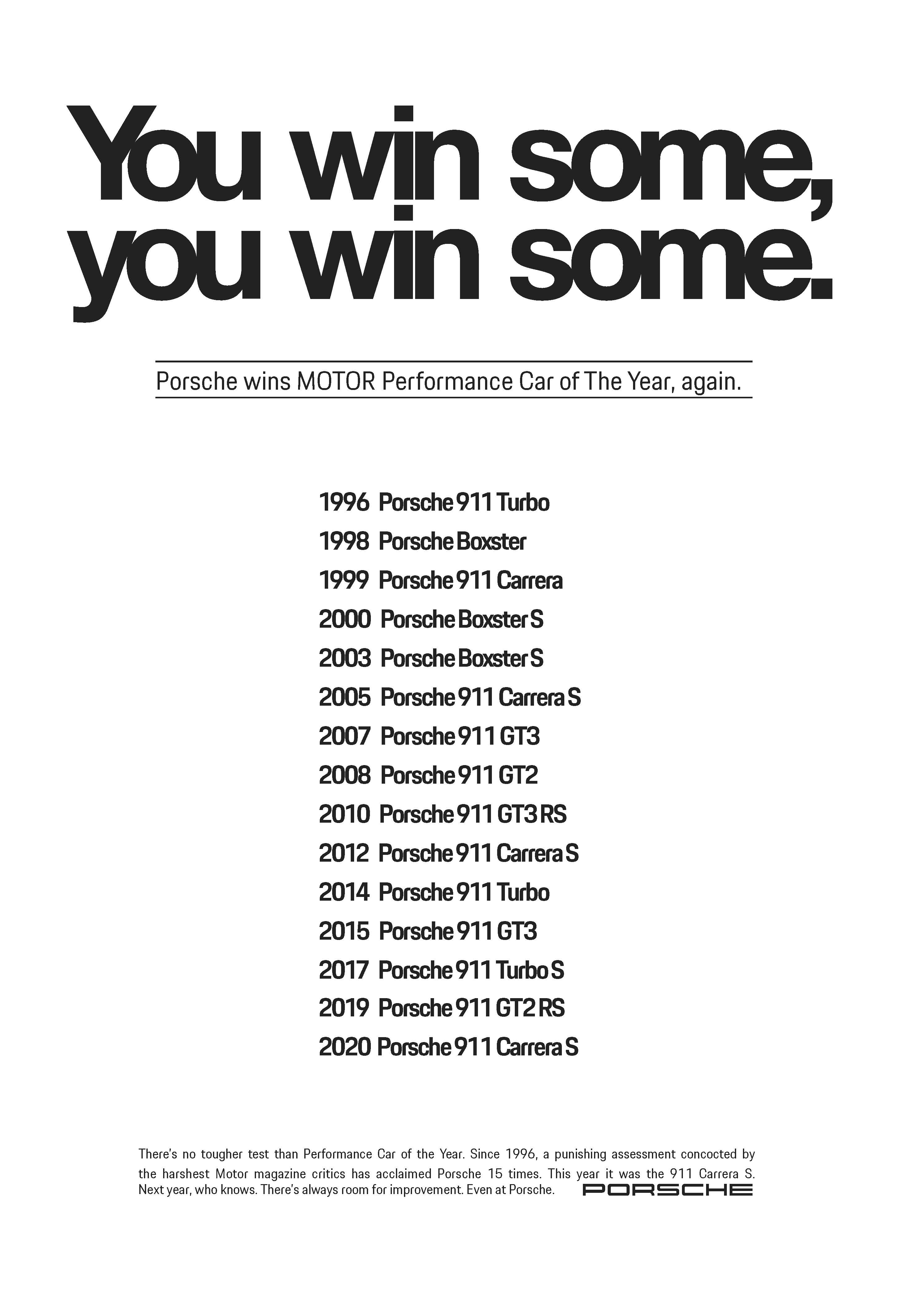
And the tally shows it. The Porsche Boxster (1998) and Boxster S (2000, 2003) have earned three of those wins, with the balance taken by a variety of 911 variants, from Carrera (1999) and Carrera S (2005, 2012, 2020) Coupés, to GT3 (2007, 2015) and GT3 RS (2010) models. The 911 Turbo took the trophy in 1996 and 2014, with the Turbo S winning in 2017. The 911 GT2 won in 2008 and the GT2 RS in 2019.
For Morley, it’s all pretty simple: “Dominance is as dominance does.”
So, what’s the common thread that runs through so many Porsche PCOTY victories?
“Porsche understands performance car buyers,” says Enright.
“Engineering a car that is engaging for Porsche factory driver Kevin Estre, entertaining for me and exciting for those buying their very first performance car is a huge task. How do you build in that sort of bandwidth? It’s a question many rivals have attempted to tackle with patchy results.”
For Morley there are two common elements: “Staying power and utter reliability,” he says, emphasising two of the essential qualities necessary for any top-level performance car to get to the summit of this competition. And MOTOR’s demanding annual testing programme proves it.
“A lot of PCOTY contenders over the years would cope at one discipline and then lose their brakes after two laps of the race track. No Porsche ever did that. You could drive it straight off the track and onto the road for a 500-kilometre (310-mile) transport section without even thinking twice about it,” he says.
“Porsche has an unrivalled record at Performance Car of the Year with very good reason." Andy Enright, Editor, Motor Magazine
It’s a telling insight, especially from a seasoned journalist of 35 years who typically road tests up to 100 performance cars in any given year.
And it’s a point MOTOR emphasised during its 2019 testing program.
After confirming the performance of the winning 911 Carrera S on its laps of the circuit (which was a full three seconds quicker than the next-fastest car), Morley reported: “Out on the road, the 911 follows that Porsche Tradition of offering an amazing ride despite lots and lots of roll stiffness. How exactly this has been achieved remains a mystery to myself and the majority of the car-making world.”
It’s this high level of real-world performance that’s been a cornerstone of Porsche’s success in MOTOR’s coveted annual award.
In fact, some Porsche models have set PCOTY testing records. One example is the 911 GT2 RS, which established a highest trap speed (220.85 km/h) and lowest elapsed time (10.63 seconds) for the standing quarter mile. And it performed the stopping test (from 100 km/h to standstill) in only 30.12 meters. In the latest PCOTY testing, the 911 Turbo S obliterated MOTOR’s previous 0–200 km/h record.
But Porsche’s unrivalled PCOTY success goes beyond its focus on performance and a CV of impressive test figures.
“Porsche has an unrivalled record at Performance Car of the Year with very good reason,” says Enright.
“Not only do the cars reward good drivers, but Porsche is a company that meticulously listens and learns. That iterative process of improvement is key to the development of discrete model series, each generation building on the excellence of what went before rather than losing that continuity of personnel, of ideas and of design.”
Enright adds that it also takes something special to win so many MOTOR Performance Car of the Year awards.
“The end result must always be a car that inspires confidence, which has a consistency that makes inputs and their corresponding outcomes predictable. It sounds an easy thing to achieve, but it requires an entire organisation to be aligned with that goal, from end to end, in order to achieve it. This level of dynamic quality isn’t something that can be engineered into the process halfway through. It’s fundamental to a great performance car and it’s something that Porsche intrinsically understands.”
Visit porsche.com/australia/70years for more information regarding 70 Years of Porsche in Australia, as well as following @PorscheAus on social media.
Follow Porsche Cars Australia
On Instagram
On YouTube
On LinkedIn
On Twitter
Info
Author Peter Fadeyev
Photos MOTOR Magazine, Ellen Dewar, Peter Watkins
.jpg/jcr:content/1999%20911%20Carrera%20(1).jpg)
.jpg/jcr:content/1996%20911%20Turbo%20(2).jpg)
.jpg/jcr:content/1998%20Boxster%20(1).jpg)
.jpg/jcr:content/1999%20911%20Carrera%20(1).jpg)
.jpg/jcr:content/2000%20Boxster%20S%20(1).jpg)
.jpg/jcr:content/2003%20Boxster%20S%20(1).jpg)
.jpg/jcr:content/2008%20911%20GT2%20(7).jpg)
